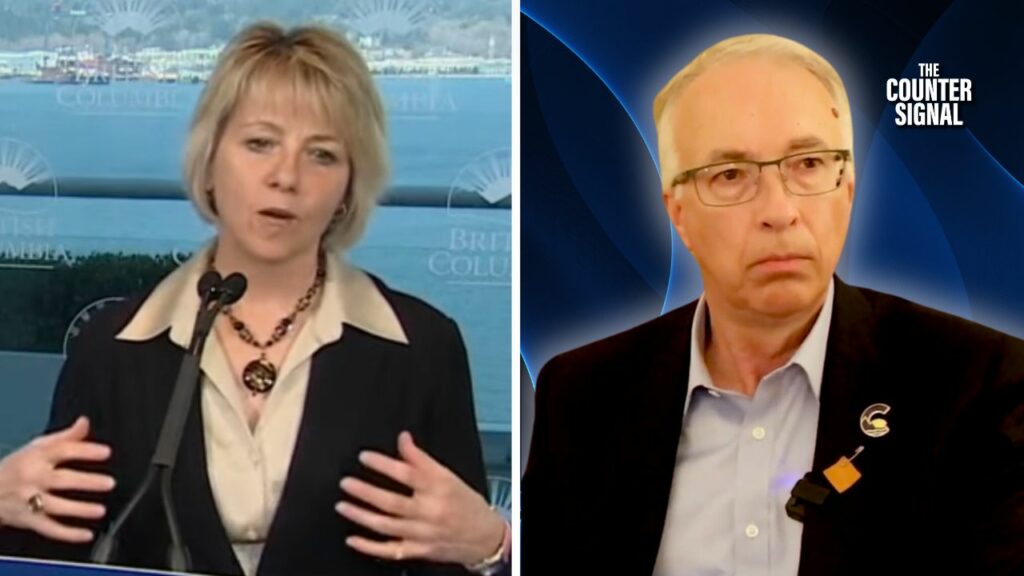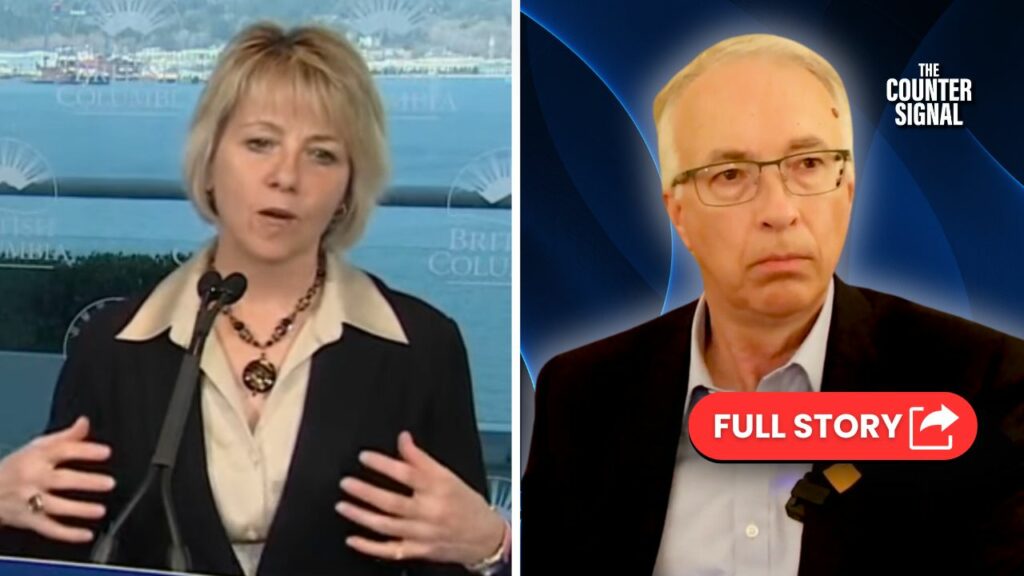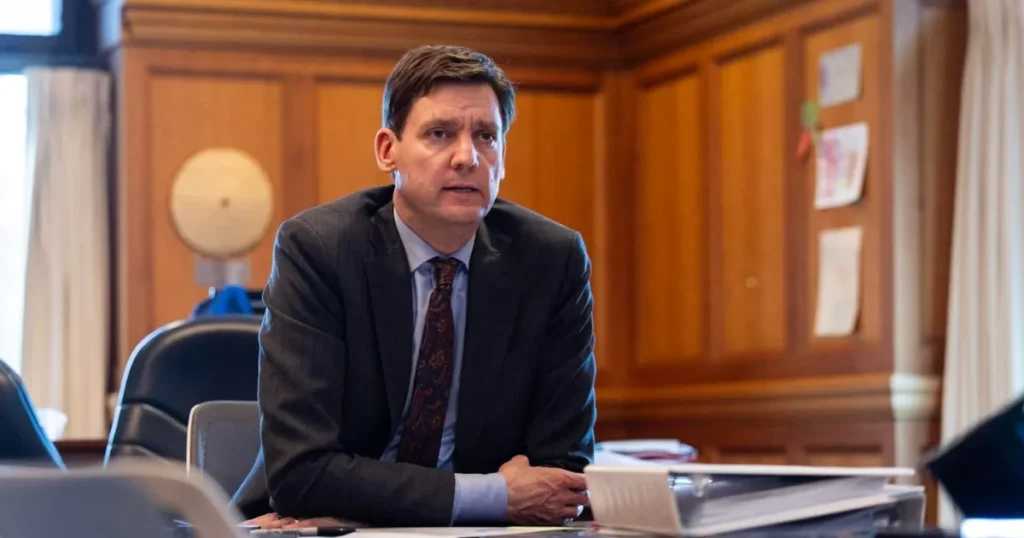In an exclusive interview with The Counter Signal, BC Conservative leader John Rustad said he’d fire BC Health Minister Bonnie Henry over her unreconcilable commitment to decriminalizing hard drugs.

This conversation is part of a much longer interview that will be accessible to all TCS Newsroom Insiders. To become an Insider, click the link here and subscribe to get exclusive access and support The Counter Signal’s journalism.
When asked if he could work with Bonnie Henry—who just returned from asking Ottawa for more funds for drugs and so-called safe injection sites—Rustad gave a straight answer.
“No,” he said. “I’m sorry, but when you look at it, that philosophy, British Columbia now has what is thought to be the highest number of addicts per capita anywhere in North America.”
“The policies in place of decriminalization and safe supply have been an absolute disaster.”
He continued, recalling one high-school patient of a doctor who stated that he got hooked on drugs through safe injection sites along with at least 30 of his peers.
“These drugs are dangerous. They are getting into our supply system. They’re creating the next generation of addicts,” Rustad continued.
“We need to change course on this, and the fact that Bonnie Henry is interested in doubling down on this and expanding the whole decriminalization and safe supply [sites]… these policies that they’re bringing forward are just, they’re disastrous; they’re radical. We need to change course.”
When directly asked whether he’d fire Bonnie Henry after being elected, Rustad said, “I look at it this way, and I’m not sure where Bonnie Henry is in her contract, but we will be changing course should the Conservatives have the honour of forming government in October, and I can’t see how that will work with Bonnie Henry.
“So we’ll certainly have a conversation with her exiting in terms of we need to put somebody in place that’s actually going to be able to have a different approach to how we address the addictions problem and how that feeds into so many other things within British Columbia.”
Rustad stands up for nurses fired over COVID vaccine mandate
While Rustad says COVID was a difficult time in terms of coming up with pandemic policies, he was highly critical of David Eby and Bonnie Henry following the end of the pandemic, criticizing them for keeping the mandate and not hiring back BC’s healthcare workers.
“Every other jurisdiction in North America has dropped their mandates and has hired back their healthcare workers,” Rustad said. “Bonnie Henery and David Eby are insisting, ‘no, we’re going to keep the mandates’—we’re the only jurisdiction in North America. What science are they following that nobody else is following?
“We need to drop these mandates. We need to hire back these healthcare workers. And somebody like Bonnie Henry is in the way of doing that. And clearly, David Eby wants this. Otherwise, he would’ve changed it. He has the power to change it.”
It’s worth mentioning that a class action lawsuit has been filed against Henry for causing significant harm to healthcare workers as a result of the mandate and that she acted without knowledge of significant data related to vaccine efficacy and harm.
The drug problem in BC
Of the many problems facing BC residents, perhaps none is more visible than the issue of addiction.
In 2022, the opioid overdose death rate was 44 per 100,000 in British Columbia, the highest of all provinces and over two times the national average of 18.8 per 100,000.
Moreover, from January to September 2023, 5,975 people died of apparent opioid toxicity (22 per day), while 21,708 had opioid-related poisoning emergency department visits (80 ED visits per day).
All figures were up from the previous year, and again, BC was the most affected province based on the number of events relative to population size.
Not only has this trend continued to the present day, it’s actually gotten worse. Enter BC Health Minister Bonnie Henry and NDP leader David Eby.
BC decriminalizes hard drug use
In 2022, BC leader David Eby and BC Health Minister Bonnie Henry requested that BC be exempt from Canada’s federal drug laws, meaning that low-quantity possession for anyone 19 and older was no longer illegal.
This request was granted shortly thereafter and has been catastrophic for the province both in terms of the number of addicts and the number of overdoses. And to make matters worse, the move to decriminalization happened in concert with the push to establish more so-called safe injection sites, ensuring that a “safe” supply is always available for anyone willing to get in line.
But despite the BC NDPs tacitly admitting their failure and backtracking on drug decriminalization, Bonnie Henry has remained steadfast.
Bonnie Henry doubles down
Earlier this year, Henry called safe injection sites the “ethical way to reduce harm for hard drug users”, adding that she came to this conclusion “through research and evidence”.
She further stated that she wants to expand upon the range of drugs offered at safe supply sites so that addicts can acquire smokable fentanyl, with fentanyl being the cause of more drug-related deaths in Canada than any other substance in the country.
At a news conference in February, she recommended people ignore public outcry over the increase in drug-related deaths in the province, advocating for “compassion” for those who may be arrested for possession instead—something which very well could save their lives.
Specifically, Henry said it was important to not let “rhetoric in the public domain… overcome the evidence that we have that putting people into the criminal justice system because of their drug use is not going to save lives and it’s not going to help them.”
“We need to replace it with the compassion and understanding that I know we have in this province.”
By Henry’s attempt to delegitimize the public’s concerns and her continued adherence to hardline decriminalization and general drug proliferation, it’s become clear that Henry will never back down on this issue. And that’s not something that’s reconcilable with a future forward-thinking BC government that wants to see drug-related deaths down and prosperity for all up.









I can’t wait to see John Rustad as our premier. Thank you Counter Signal for all your amazing and honest updates.